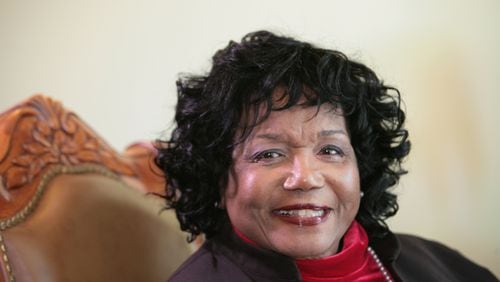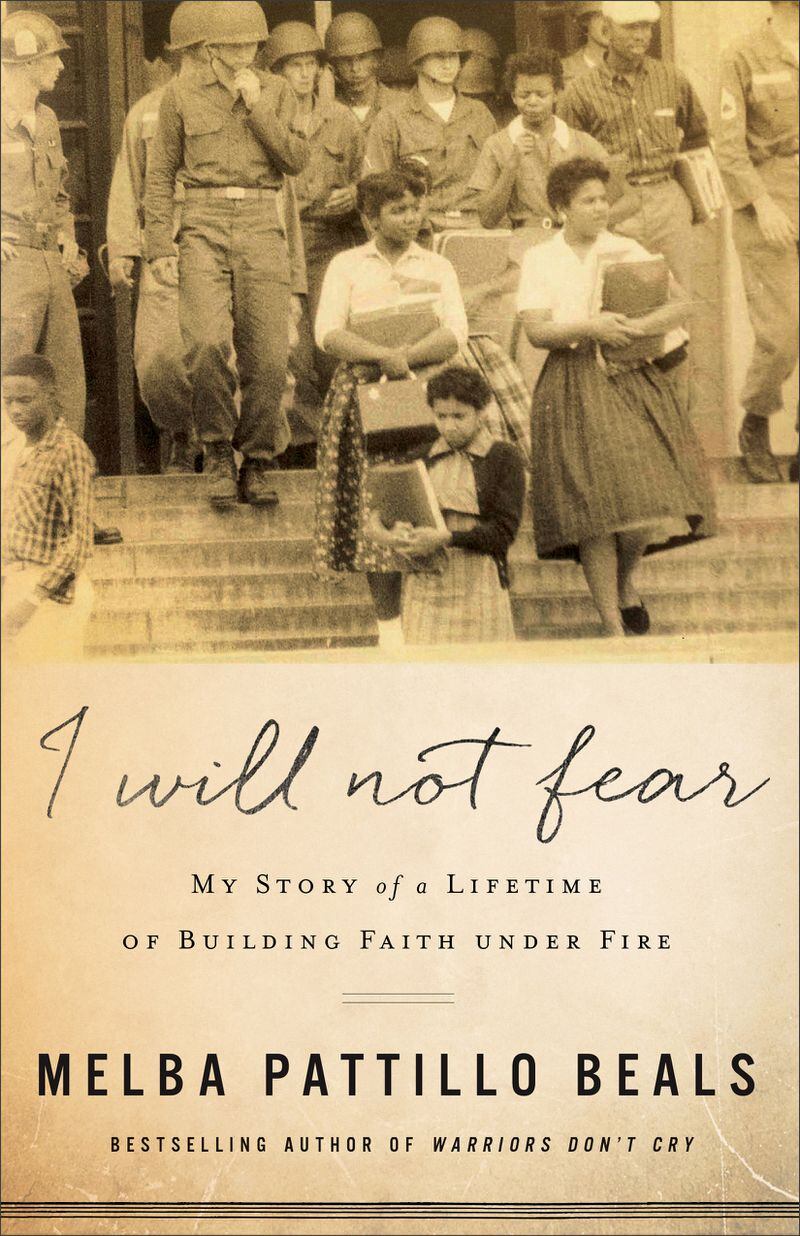It has been more than a decade since Melba Pattillo Beals has written a book about her experience as one of the Little Rock Nine, the nine black students chosen to integrate Central High School in Little Rock, Ark. in 1957. While she has absolute memory of those events, she had to dig deep to tap into them.
“Everything that happens to us is stored somewhere inside and you never really get rid of (those memories). I have tried,” said Beals by phone from her home in California.
So she hired a therapist to help her deal with those suppressed memories. “I realize probably for the first time how bad and serious my childhood was,” she said. “This is a bad story, but in the end, the good part is that I am rescued by a white family. They make up for anything and everything that anybody ever did to me,” she said.
In "I Will Not Fear: My Story of a Lifetime of Building Faith Under Fire," (Revell, $17), Beals recounts how faith guided her and her family through the most challenging times in their lives. With her grandmother, India, as her guide, Beals learned life lessons that would sustain her for years to come.
“My grandmother was in many ways a mom,” Beals said. Her grandmother cooked their meals and cared for her while her mother was away working or going to school. With her mother, Beals said the topic of conversation was usually achievement. Her mother expected a checklist of goals and she wanted to know if they had been completed or not. “It is either you are performing up to par or you are not,” Beals said.
Each night, her mother and grandmother would find the time to read to her from the Bible or literature and ask her questions about the text. They wanted her to know what was going on in the world. But Beals learned much about the strictures of racism from experience.
She was just a child when she observed how her parents would behave on trips to the grocery store. Her normally proud parents went from standing tall to bowing and kowtowing in the presence of whites, she said.
The town erupted not long after the US Supreme Court declared separate but equal is unequal in the case of Brown v. Board of Education. Soon, the NAACP came to town.
Beals was one of nine teens selected to integrate Central High, a predominantly white school of more than 1,900 students. The students who were chosen had to have good grades, they had to be well behaved and as Beals would learn, they needed to have a strong faith.
“I am 15 and I am well aware that white folks don’t love us,” Beals said thinking back to the moments before the first day of school. She thought a nice dress, clean shoes and extra deodorant to dispel the myth that black people smelled badly, would do the trick. In the classroom, she figured she would just show them how smart she was.
In her mind, these were the reasons they didn’t want black students at the school and they would soon realize that she and the other black students were people just like them. “I was trying to combat generations of segregation. I did not understand the nature of the tradition,” Beals said.
Instead, she found herself dodging objects and angry mobs on the streets or in the halls on her way to class. Using the bathroom was particularly perilous when girls would stand on the toilets in the stalls on either side and drop lighted notebook paper on her head.
She prayed daily while enduring such abuses that God would deliver her safely through the day or maybe touch the hearts of the white students and adults who considered themselves Christians. Her teenage years quickly became a series of press conferences coupled with bullying from her white peers and their parents.
In 1958, the Governor built a private school for white students and shut down all the public high schools in the city. That same year, Beals’ grandmother died of leukemia.
With violent threats from the KKK continuing to grow and no school to attend, Beals was shipped off to California. She was grateful and would find salvation in a white family who had helped create the Santa Rosa chapter of the NAACP.
She lived with them while completing high school and they helped her transition to college. To her mother’s dismay, Beals would also meet and marry a white man with whom she had a daughter.
In the book, Beals goes on to describe the decline of her marriage and her struggles as a single mother in Oakland during the rise of the Black Panther Party. Through continued education and faith, she would become a news reporter and writer, but she would always find herself faced with barriers.
Just like the memories she can still draw from deep in her mind, her expereinces with discrimination never seemed to go away. She felt it as she pursued a career in television news when a trusted friend, her physician, told her she was too fat and too black to be on television. He suggested she might be mentally ill to have such unrealistic dreams.
She continues to face discrimination in the California housing market. Just a few months ago, in August, Beals had to rely on a group of white friends to scope out homes that would she would likely have been denied as an elderly black woman who has been crippled by several back surgeries.
The difference between the 1950s and now said Beals, is the collective attitude of black people in America. Unlike her parents and unlike her, younger generations have different expectations of how they should be treated.
Her deepest feelings about race, however are embedded in her relationships with her family -- the adopted family that decades ago she feared would hang her at dinnertime.
“These people were Quakers and God lovers and doers,” Beals said. “I know what is true. If (people) knew better, they would do better.”
About the Author








